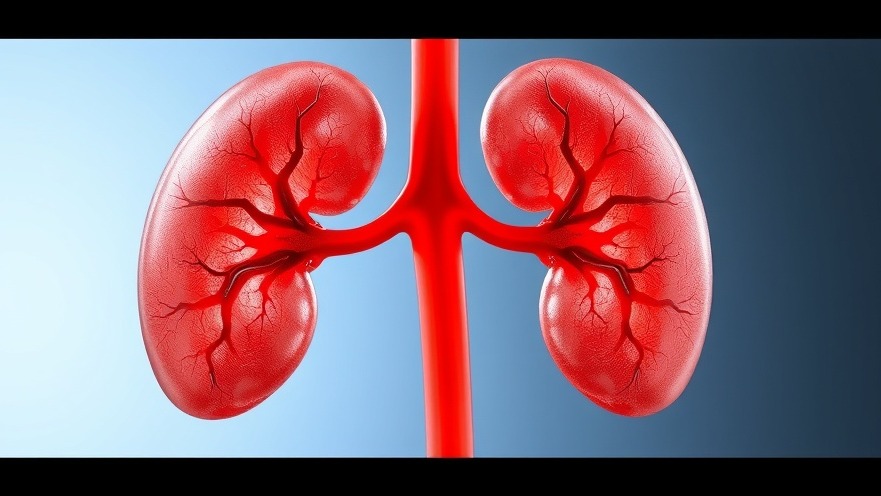
Understanding Sarcopenia: The Silent Thief of Strength
As we grow older, many of us proactively seek ways to safeguard our cognitive abilities and bone density. However, one vital component of our health often slips through the cracks: muscle mass. Age-related muscle loss, clinically known as sarcopenia, can significantly affect our independence and quality of life. Studies indicate that individuals may lose approximately 3 to 8% of their muscle mass every decade after the age of 30, with this deterioration accelerating post-60.
What Causes Muscle Loss as We Age?
Sarcopenia stems from a complex interplay of factors. Our bodies become less efficient at protein synthesis as we age, which is crucial for muscle recovery and growth. Several elements contribute to this decline:
Decreased Physical Activity:The reduction in daily physical engagement can lead to muscle atrophy.
Nutritional Deficiencies: Essential nutrients required for muscle health become limited, particularly proteins and certain vitamins.
Health Conditions: Emerging health challenges, including chronic illnesses, can exacerbate muscle loss.
Inflammation: Chronic inflammation is known to hasten muscle degradation.
Changes in Muscle and Nerve Interactions: Aging alters our neural connections, affecting muscle activation.
Hormonal Balance Alterations: Changes in hormone levels, such as testosterone and growth hormone, also impact muscle maintenance.
The Everyday Impact of Muscle Loss
The implications of sarcopenia extend beyond the physical realm, making simple activities such as walking or climbing stairs increasingly difficult. Additionally, reduced muscle mass hampers endurance, leading to quicker fatigue and an elevated risk of falls and fractures—potentially leading to serious health issues. As Dr. Joseph Maroon, a neurosurgeon and athlete, notes, knowing your muscle status and taking actionable steps can help reverse these effects.
Measuring Your Muscle Health: Grip Strength as an Indicator
One accessible way to gauge your muscle health is by measuring grip strength. While grip strength alone doesn't provide a comprehensive overview of overall muscle mass, it serves as a reliable indicator of physical function, particularly in older adults. Recent studies reveal a strong correlation between high grip strength and improved cardiovascular health outcomes, reinforcing the importance of this simple measure.
Simple Strategies to Combat Age-Related Muscle Loss
Fortunately, there are several natural approaches to combat sarcopenia:
Regular Resistance Training: Engaging in weight training or resistance exercises helps stimulate muscle growth and boost strength.
Protein-Rich Diet: Ensuring adequate protein intake through foods like lean meats, legumes, and dairy products is essential. As we age, aiming for higher protein consumption per meal can help maintain muscle health.
Embrace Healthy Fats: Integrating sources of Omega-3 fatty acids found in fatty fish can promote muscle health and combat inflammation.
Stay Hydrated: Proper hydration supports overall health and muscle function.
Building a Healthier Future: The Role of Community Health
Engaging with community health and wellness initiatives, such as classes or workshops focused on fitness and nutrition, can create a supportive environment to encourage healthier habits. In San Antonio, for instance, numerous health and wellness centers offer valuable resources for older adults to maintain their physical capabilities.
Take Control of Your Health Journey
Ultimately, awareness and proactive steps can lead to a healthier, stronger future. Incorporating small yet impactful changes now can stave off the effects of age-related muscle loss, ensuring that you continue to enjoy an active lifestyle. As Dr. Maroon advises, the journey to wellness starts with understanding where you stand today, and taking the necessary steps towards improvement.
Call to Action: If you’re ready to take action against age-related muscle loss, consider visiting your local health and wellness center for resources tailored to your needs. Engage in community events that promote physical strength and nutritional knowledge to empower yourself and others on this important health journey.
 Add Element
Add Element  Add Row
Add Row 



Write A Comment